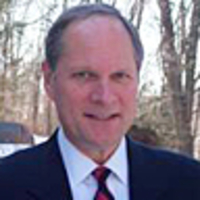If Obamacare survives the Supreme Court, whole or only partly denuded, one of the several headaches still awaiting the administration is its vexing election-year dispute with the Catholic Church over implementation of the health plan.

As if to remind President Obama of that fact, the Catholic bishops on Thursday began their latest national protest effort, Fortnight for Freedom, with a Mass at the Baltimore Basilica (the nation’s oldest cathedral), to be followed by two weeks of prayer and more temporal activity, such as lobbying Congress.
The bishops began their fortnight activities on Thursday because it was the feast day of two of the church’s great political martyrs—Thomas More, who was beheaded in 1535 for denying Henry VIII’s sovereignty over the church, and John Fisher, who came to a like end for bucking that same royal personage. The symbolic casting of Barack Obama as Henry VIII reflects the dire terms in which church leaders have cast the battle with the White House, which New York Cardinal Timothy Dolan has accused of “strangling the Catholic Church.”
But the administration has been given a way out of its impasse with the church, by means of a compromise suggested by a nun who has been the White House’s most important Catholic ally in the health-care struggle. In a five-page letter to the Department of Health and Human Services, Sister Carol Keehan, head of the Catholic Health Association, urged a potential solution that might well cause the bishops to back off. Her proposal: allow the church, rather than the government, to decide what activity constitutes legitimate ministry, thus earning exemption from health-care rules that the church finds morally objectionable.
The administration, hesitant about the bishops’ willingness to compromise, has not indicated whether it will endorse Keehan’s proposal. But, critically, the Keehan fix would remove the element of Obamacare that the bishops say would force a violation of Catholic conscience.
At issue is the mandate, announced by HHS in January, requiring employers to provide workers with health services, including some services the Church deems objectionable, such as contraception, sterilization, and abortion-inducing drugs. Exemptions were granted to actual houses of worship, but not to church-based entities such as health facilities, schools, and charities. The rule was widely seen as an unforced policy error, and was roundly criticized by Catholics across the political spectrum. This was partly because, to liberal Catholics, service to the poor is a central requirement of the faith, at least as important as the protection of unborn life.
The administration quickly recognized its misstep, and offered what it called “an accommodation” to the church, shifting the responsibility for providing contraceptive services from employers to their insurers. This satisfied the objections of many Catholics, including Sister Carol. But the bishops dug in.
The church leaders argued that the Catholic entities would still be providing the contraception services, however indirectly. More, they objected to the administration’s presumption that the government, rather than the church, could define what activity constituted a ministry. This shaped the church’s strategy: The battle was not over contraception, but for religious freedom.
The politics of the dispute seemed, at first, to favor the White House and its supporters, who cast the bishops as being on the side of Rush Limbaugh in the “war on women.” But the religious-freedom strategy unified the oft-divided bishops, who have made clear that they have no intention of backing down. A series of protests have been organized, political activity encouraged, and in May, 42 Catholic dioceses and organizations filed lawsuits against the federal government over the health-care mandate.
While the bishops disavow any partisan interest, a passionate, sustained campaign for religious liberty directed against the Obama administration could prove decisive in what is expected to be a close election. A sudden resolution of the dispute could change the political landscape considerably.
Sister Mary Ann Walsh, media director for the U.S. Conference of Catholic Bishops, told The Daily Beast this week that Sister Carol’s proposal would address the matter of most concern to the Bishops—“the government defining a ministry makes you shudder,” she said.
“I think it would be a huge step forward if they would go back to the definition that we’ve always had of what constitutes a ministry,” she added. “I think that would be a significant move forward.”
Cardinal Dolan said as much himself in an interview with Newsweek earlier this year, urging the administration to “simply give us wider latitude and say that the government doesn’t need to decide what the exemptions are.’’
The administration’s imperative has been to make sure that all women, regardless of their circumstances or place of employ, have access to preventive health care. Whether the administration believes Sister Carol’s proposal will satisfy that objective remains to be seen. Sister Carol believes that women working for Catholic entities will be able to obtain preventive care through other federal programs, such as those administered by Planned Parenthood and through grants from the Health Resources and Services Administration.
The fact that Sister Carol, who was the White House’s go-to Catholic during the political battle to get Obamacare passed, has proposed a compromise that the bishops might like has been seen by some as a capitulation. “We are still as much in support of the Affordable Care Act and of preventive services as we ever were,’’ Keehan told The Daily Beast this week. “We just want a way to get past this very neuralgic issue in a way that’s acceptable to everybody.”






